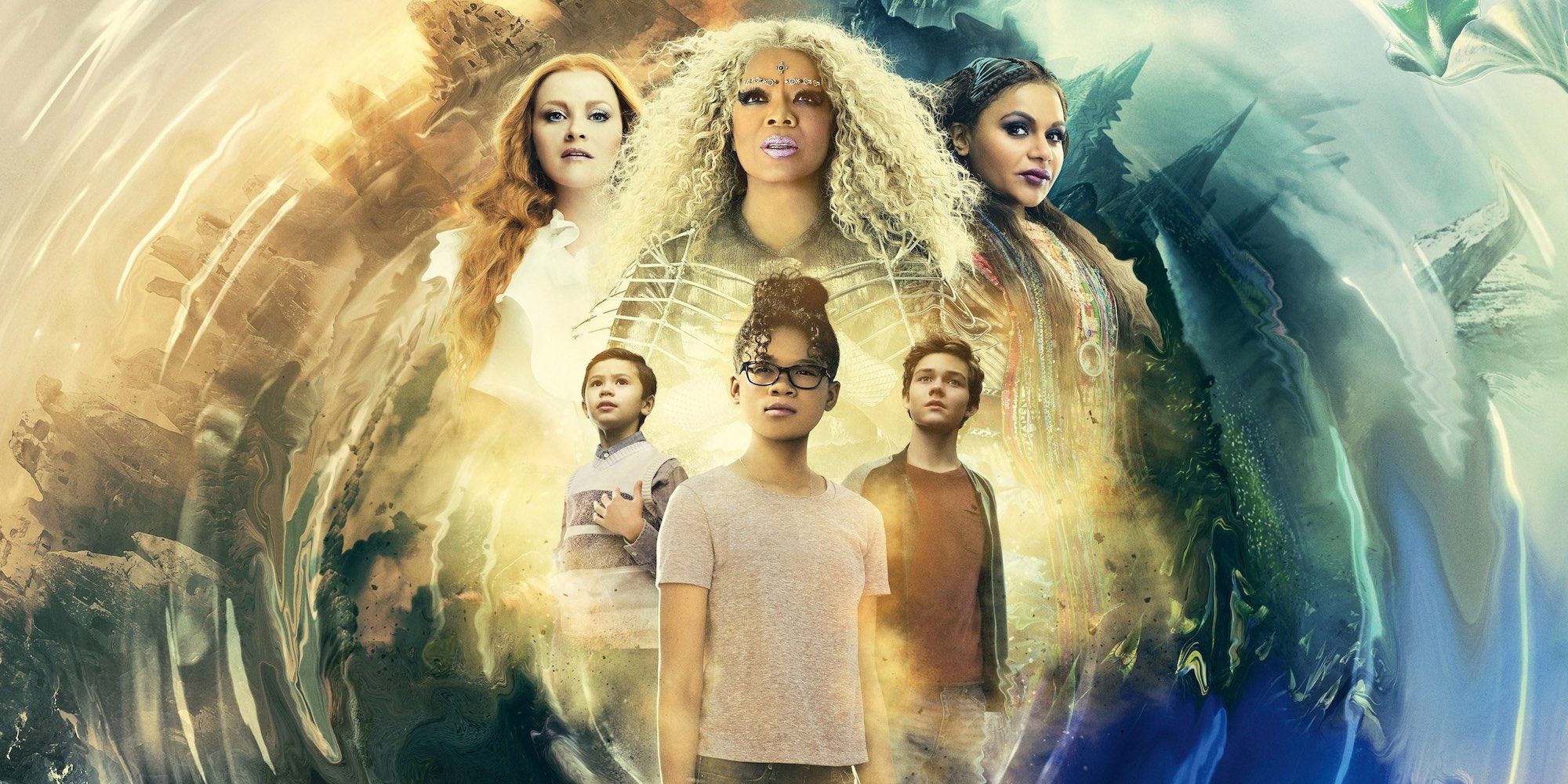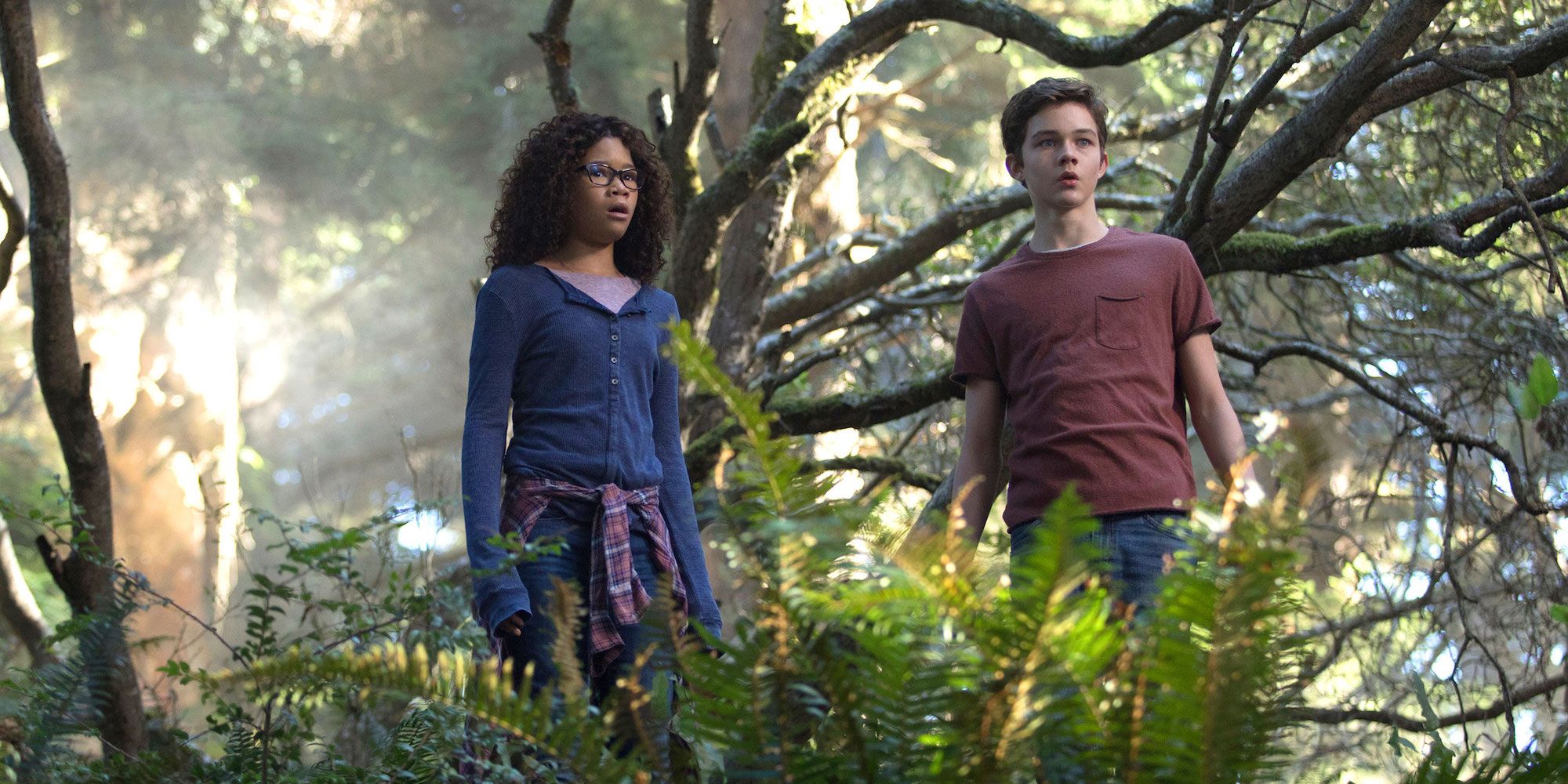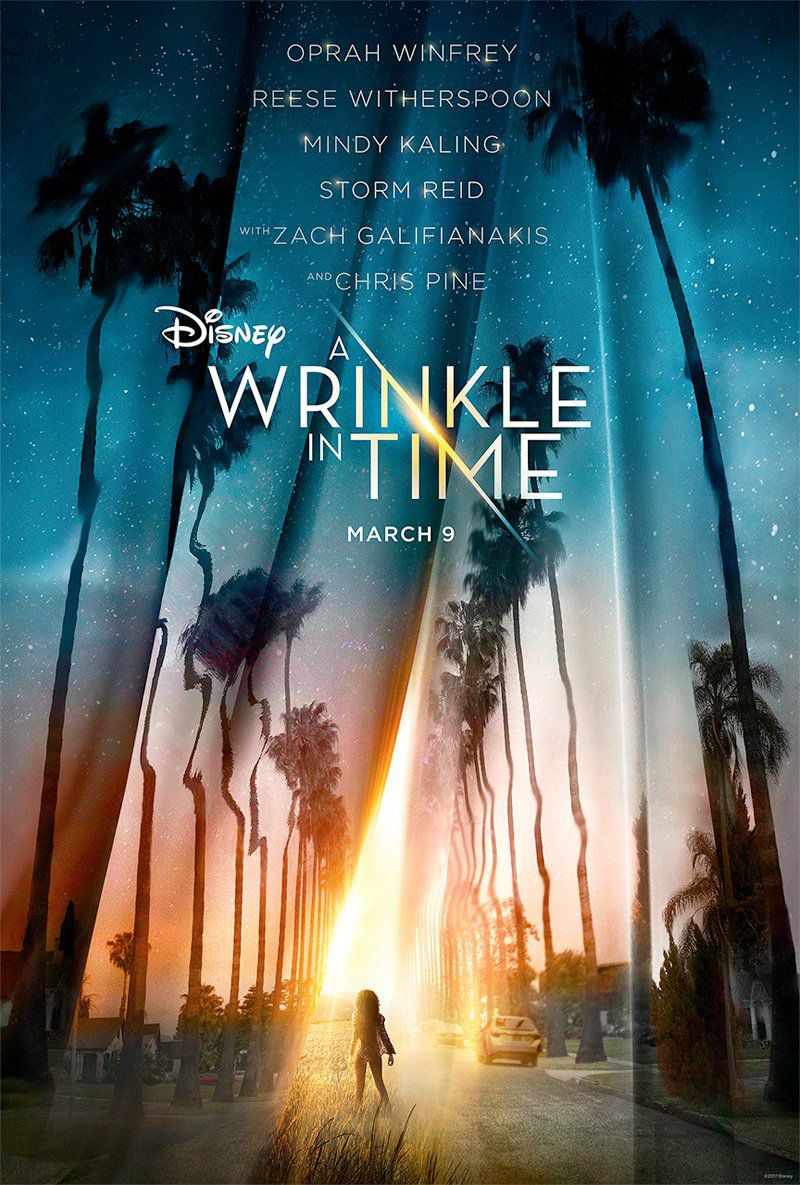This week sees the release of A Wrinkle in Time, the long-awaited big-budget adaptation of Madeleine L'Engle's iconic children's novel. It's a book that's been a part of many generations' childhoods, so it only made sense that someone would turn it into a movie. Under the direction of Ava DuVernay (Selma) and screenwriter Jennifer Lee (Frozen), the film became Disney's latest live-action project outside of the Star Wars franchise and the Marvel Cinematic Universe. As well as being the first movie directed by an African-American woman to receive a budget exceeding $100m, it signalled a potential shift in Disney's strategy - both in terms of live-action films and non-franchises. However, that plan hasn't gone well for them in the past.Looking at Disney's questionable past in live-action blockbusters that aren't descended from their own intellectual properties, the results have not been great. Indeed, some of them have been near mythic flops. The 2012 sci-fi epic John Carter, based on Edgar Rice Burroughs' stories, under-performed so much that Disney took a $200m write-down on the project. The following year, Gore Verbinski's take on The Lone Ranger, starring Johnny Depp and Armie Hammer, made $260m on a $250m budget (it reportedly needed around $650m just to break even). Tomorrowland, an attempt to replicate the success of Pirates of the Caribbean by adapting yet another theme park attraction, also seriously under-performed, resulting in the company losing between $120 - 140m.Related: 15 Live-Action Disney Remakes And Sequels You Didn't Know Were ComingThese were pricey, highly ambitious projects that eschewed many preconceptions about what constituted a Disney movie. The ideas behind them were solid, but audiences had little to no interest in seeing them - and if the early box office numbers are anything to go by, A Wrinkle in Time seems doomed to suffer the same fate.
What A Wrinkle in Time Means
It's too early to completely write off A Wrinkle in Time, but the parallels are hard to ignore. On paper, this is exactly the kind of movie Disney should be making: a colorful, unabashedly vibrant and earnest movie that appeals to families and allows them to create new franchise opportunities. The book is beloved and, crucially, it's the first in a series. As major franchises tend to skew older aiming more for teenage audiences and upwards there's a growing gap in the market for this sort of movie series, and Disney are experts in appealing to those audiences.
It's also something of an outlier in terms of Disney's current live-action strategy. The studio has experienced stunning success over the past few years through live-action remakes of classic animated Disney features. 2016's The Jungle Book grossed close to $1bn, while the following year's Beauty and the Beast became the 11th highest grossing film of all time. Other remakes in the pipeline include Dumbo (directed by Tim Burton), The Lion King, Mulan and Peter Pan. Aside from the upcoming re-imagining of the classic ballet, The Nutcracker and the Four Realms, A Wrinkle in Time feels like the odd one out in this slate - but it also makes the most sense as a long-term investment.
Related: An Adaptation of A Wrinkle in Time Was Never Going to Work
Those live-action remakes are a smart move Disney's back-catalogue is beloved, and the nostalgic pull is undeniable, as well as the opportunities to strengthen their brand but the studio will eventually run out of things to remake. Or, at the very least, they'll run out of their most popular properties to give this treatment (it remains to be seen if audiences would be as keen for, say, a live-action Home on the Range or The Black Cauldron). It stands to reason that they would wish to expand upon their admittedly impressive vault of offerings and delve into new genres, stories, and so on.
Of course, this is reliant on such films actually appealing to those audiences. So far, at least in the current era of Disney at their most dominant, it's been a mixed bag. The live-action stuff doing well has either been those remakes or additions to already established franchises like Pirates of the Caribbean.
Why Disney Is So Focused On Franchises
Walt Disney Pictures saw a change in leadership in 2012, after Chairman Rich Ross was ousted and replaced by Alan F. Horn. Under Ross, the studio commissioned those three major live-action flops, which was allegedly part of the reason Disney's management wanted him out. Horn's strategy has been more rooted in working with Disney's past, including the live-action remakes (The Jungle Book was a big project for him). Around this time, Disney acquired Lucasfilm, giving them a whole new strategy to focus on, and that came a mere three years after they bought Marvel.
By 2012, they owned two of the biggest franchises on the planet, and so building their own new ones seemed almost inconsequential. In the early 2000s, Jerry Bruckheimer had convinced then-CEO Michael Eisner to invest in an adaptation of Pirates of the Caribbean because it would allow Disney to compete with blockbuster trilogies like The Matrix and The Lord of the Rings. Nowadays, they don't need to create so much as remake and acquire.
This is all part of the current CEO Bob Iger's long-term game-plan, and it's paid off handsomely. Why invest in developing your own potentially expensive franchises - ones with no guarantee of success - when you can simply buy out everyone else? The studio's current plans to acquire large parts of 20th Century Fox gives them greater currency in this franchise market as well. Someone else has already done the hard work and proven something like Avatar can make money, so they can step in, put the money down, and reap the benefits.
Related: Disney's Christopher Robin Trailer Arrives
What Is Disney's Live-Action Plan?
Disney have traded strongly in nostalgia since the beginning, and their live-action remake plan is another element of that. It gives them guaranteed hits, as well as further tightens their grasp on their back-catalog for new generations. Of course, even if A Wrinkle in Time under-performs, at this moment in their history the studio is in a strong enough position where a flop or two won't hurt too much. It won't necessarily change their live-action plans either; they're already scant on non-franchise movies that aren't remakes or sequels to established properties. We may see less investment in adaptations of novels or non-Disney affiliated work, but there's little on their upcoming slate that suggests they were interested in that anyway.
Non-franchises, as a result, suffer. Projects like that can be hard to sell, as witnessed by the strange decision to advertise John Carter as if it didn't take place on Mars. The Lone Ranger struggled to appeal to modern audiences who cared little for such an old-fashioned property, while viewers had no idea what to make of Tomorrowland, or even what it was about (how do you adapt a theme park section into a movie, most people asked). Franchises cannot live by niche audience appeal - they must cater to the widest demographics possible. Marvel has that audience built in (most of the work in creating that devoted fan base happened before the Disney acquisition), as does Star Wars, and Disney themselves made one of the most wildly devoted fandoms in pop culture history over several decades. It can be tough to justify the cost of making a film like Tomorrowland (which had a reported budget of $190m) and advertising it to the world when there's little to no guarantee that people will be interested.
Whatever happens with A Wrinkle in Time, Disney are prepared for outcomes good and bad. Success offers them new opportunities, but it's doubtful that such plans will ever become their priority when the other options are Marvel, Star Wars, and remaking their own properties. They've already got 24 super successful live-action movies under their belt with the Marvel Cinematic Universe, and that's more valuable to them than whether or not a classic book works as a new Disney movie. A Wrinkle in Time succeeding would be a pleasant cherry on top of an already bulging cake, but if that doesn't happen, their live-action strategy remains in place. Disney may struggle with non-franchises, but otherwise, they remain unbeatable.
More: Disney Streaming Original Movies Include Sword in the Stone Remake





